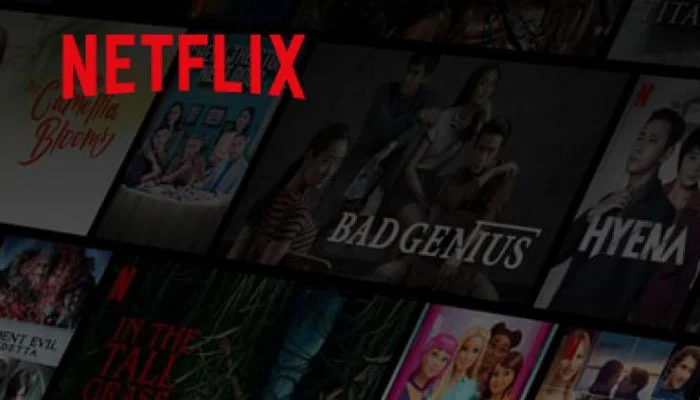By Fariha Ilyas
Netflix (NFLX.O) is strategically plotting a price hike for its premium, ad-free streaming service. The catalyst for this bold move? The ongoing Hollywood actors’ strike. While the specifics are still shrouded in secrecy, the Wall Street Journal’s recent report has set tongues wagging and Netflix’s shares soaring by over 3%.
Sources familiar with the matter have unveiled Netflix’s global pricing discussion, but insiders suggest that the initial price hike will roll out in the United States and Canada. The question on everyone’s lips: How much more will viewers need to shell out for their ad-free, binge-worthy content? As of now, the answer remains elusive.
Netflix, the streaming giant that has disrupted the entertainment industry, is keeping its cards close to the chest. The streaming juggernaut has chosen silence, declining to comment on these recent developments.
The impending price hike underscores Netflix’s unyielding commitment to quality content and its ability to adapt to the ever-evolving entertainment landscape. The Hollywood actors’ strike has catalyzed this decision, pushing the streaming giant to explore new revenue streams.
While Netflix’s user base continues to balloon globally, it seems that the company is now ready to leverage its loyal subscriber base to drive higher profits. Only time will tell how the subscribers will react to this news and whether the promise of top-tier content will be enough to ease the burden of a potentially heftier subscription fee.
Netflix’s journey from a humble DVD rental service to a global streaming powerhouse has been nothing short of remarkable. Over the years, it has revolutionized the way we consume content, making binge-watching a household norm and ushering in the era of on-demand entertainment. The company’s relentless pursuit of original programming and partnerships with top-tier talent has solidified its position as a major player in the entertainment industry.
However, success comes at a price, and for Netflix, that price is steadily rising. The cost of producing high-quality original content has skyrocketed, driven by fierce competition from other streaming platforms like Amazon Prime Video, Disney+, and Apple TV+. Additionally, the pandemic-induced surge in streaming has put even more pressure on Netflix to deliver fresh, engaging content to its ever-expanding audience.
In this high-stakes game, Netflix has consistently upped its game, churning out hit after hit, from “Stranger Things” to “The Crown.” It has become a content powerhouse, investing billions of dollars in original shows, movies, and documentaries. However, this level of commitment to quality content comes with a hefty price tag.
The Hollywood actors’ strike has further complicated matters. The strike, fueled by demands for better pay and working conditions, has disrupted the production schedules of many shows and films, including some of Netflix’s most popular series. This disruption has forced the streaming giant to rethink its content pipeline and explore alternative ways to maintain its dominance in the streaming wars.
One such strategy appears to be the forthcoming price hike. By increasing subscription fees, Netflix aims to bolster its financial resources and offset the rising costs of content production. While this move may ruffle some feathers among subscribers, Netflix is banking on its unparalleled library of content to justify the price increase.
The decision to potentially raise prices, however, is not without risks. Streaming competition is fierce, and viewers have a plethora of options to choose from. Amazon Prime Video, Disney+, Hulu, HBO Max, and Apple TV+ are all vying for a piece of the streaming pie. A significant price hike could lead some subscribers to explore other, more cost-effective alternatives.
Netflix’s future success hinges on striking the right balance between pricing and content quality. The streaming giant will need to continue delivering compelling original content while ensuring that its pricing remains competitive in a crowded marketplace. The coming months will reveal how this gamble plays out and whether Netflix can maintain its dominance in the evolving world of streaming entertainment.
As the Hollywood actors’ strike persists, Netflix’s pricing strategy will undoubtedly be closely watched by industry insiders, subscribers, and competitors alike. The streaming giant’s ability to navigate these challenging waters and emerge as a stronger, more resilient player will be a testament to its adaptability and commitment to delivering top-notch entertainment to audiences worldwide.
As the curtains rise on the ongoing negotiations between the SAG-AFTRA actors’ union and the formidable Alliance of Motion Picture and Television Producers (AMPTP), the spotlight of uncertainty shines brightly on Hollywood’s future. These talks, laden with the weight of industry dynamics and worker demands, have become the centerpiece of a drama unfolding in the entertainment world.
The preceding act in this saga featured the writers’ union, which, after five months of impassable negotiations, reached a tentative accord with the AMPTP. Their resolution leaves us wondering whether a similar fate awaits the actors’ union or if a different script will be written for this chapter of Hollywood history.
Amidst these discussions, the streaming giant Netflix emerges as an intriguing subplot. In February, Netflix orchestrated a price reduction for its subscription plans in select countries, setting the stage for an intensified battle in the streaming arena. Concurrently, it unveiled a strategic move aimed at curbing the age-old practice of password sharing among subscribers, a plan that was subsequently rolled out across more than 100 countries in May.
The timing of these Netflix maneuvers speaks volumes about the evolving landscape of the entertainment industry. As streaming platforms continue to reshape how we consume content, Netflix is positioning itself as a key player in this narrative, using both pricing strategies and technological innovations to secure its role.
The recent price cut orchestrated by Netflix is a tactical gambit in the streaming chess match. By reducing subscription costs, the platform aims to fortify its user base while luring potential subscribers away from competitors. It’s a move akin to lowering the ticket prices for a blockbuster movie, enticing audiences to experience the show. Netflix understands that in a saturated streaming market, affordability can be a powerful draw.
But the streaming behemoth’s strategy isn’t limited to price wars. It’s also waging a battle against an age-old practice: password sharing. In an era where convenience and accessibility reign supreme, sharing a Netflix password among friends and family has become a time-honored tradition. However, this tradition comes at a cost for the streaming giant, as it loses potential revenue from those who could be paying for their own subscriptions.
In response, Netflix devised a plan to restrict the freewheeling sharing of passwords. By implementing a verification system that ensures account holders are indeed authorized users, Netflix aims to retain its paying subscribers and potentially convert password-sharing freeloaders into paying customers. It’s a bold move, one that acknowledges the shifting dynamics of the streaming landscape.
The decision to roll out this system across more than 100 countries underscores Netflix’s global reach and its determination to protect its revenue streams. While it may irk some users accustomed to sharing passwords without consequence, it positions Netflix as a pioneer in addressing a long-standing issue within the streaming industry.
As the negotiations between SAG-AFTRA and the AMPTP continue, the role of streaming platforms in this narrative becomes increasingly pronounced. Hollywood’s landscape is no longer confined to traditional studios and networks; it now extends into the digital realm, where streaming giants reign supreme.
The impact of these negotiations extends beyond Hollywood’s borders, influencing the future of entertainment consumption worldwide. Streaming has become the norm, reshaping how we watch movies and TV shows. With the advent of streaming, access to content is no longer restricted by cable subscriptions or local broadcast schedules. Instead, it’s available at the click of a button, on-demand and on any device with an internet connection.
In this ever-changing landscape, affordability is a key factor. Netflix’s decision to lower subscription prices in select markets is a testament to the fierce competition among streaming platforms. With new players entering the arena regularly, including Disney+, HBO Max, and Amazon Prime Video, maintaining a competitive edge is crucial.
Netflix’s willingness to experiment with pricing demonstrates its adaptability. It’s a company that understands the importance of evolving with the times. While a price reduction may seem like a temporary solution, it aligns with Netflix’s long-term strategy of retaining and expanding its subscriber base.
The password-sharing crackdown is another facet of Netflix’s strategy. In a world where convenience often trumps legality, enforcing strict password policies might ruffle some feathers. Still, it’s a necessary step for the platform to protect its revenue and ensure that paying subscribers receive the value they expect.
The outcome of these negotiations between Hollywood’s unions and producers will undoubtedly shape the future of the industry. Hollywood’s labor dynamics, working conditions, and compensation structures are under scrutiny, and any agreements reached will set precedents for the entire entertainment sector.
As Netflix continues to write its own chapter in this story, it’s clear that the streaming giant is poised to play a pivotal role in shaping the industry’s future. By adjusting its pricing and cracking down on password sharing, Netflix showcases its adaptability and commitment to maintaining a leading position in the ever-competitive world of streaming.
Ultimately, the drama unfolding in Hollywood’s negotiation rooms is mirrored on our screens. How it all plays out will determine not only the fate of the industry but also our viewing habits and the way we consume entertainment for years to come.
In conclusion, Netflix’s potential price increase in the wake of ongoing Hollywood labor negotiations raises questions about the future of streaming services and subscription costs. As viewers, we should stay vigilant and informed about how these developments may impact our entertainment choices. It’s advisable to monitor the evolving streaming landscape and consider diversifying subscriptions to suit individual preferences and budgets. Additionally, it’s essential to support fair labor practices in the entertainment industry, ensuring that both content creators and consumers can continue to enjoy high-quality entertainment.
Subscribe our website for latest updates:
https://republicpolicy.com/shop/
Read More
















